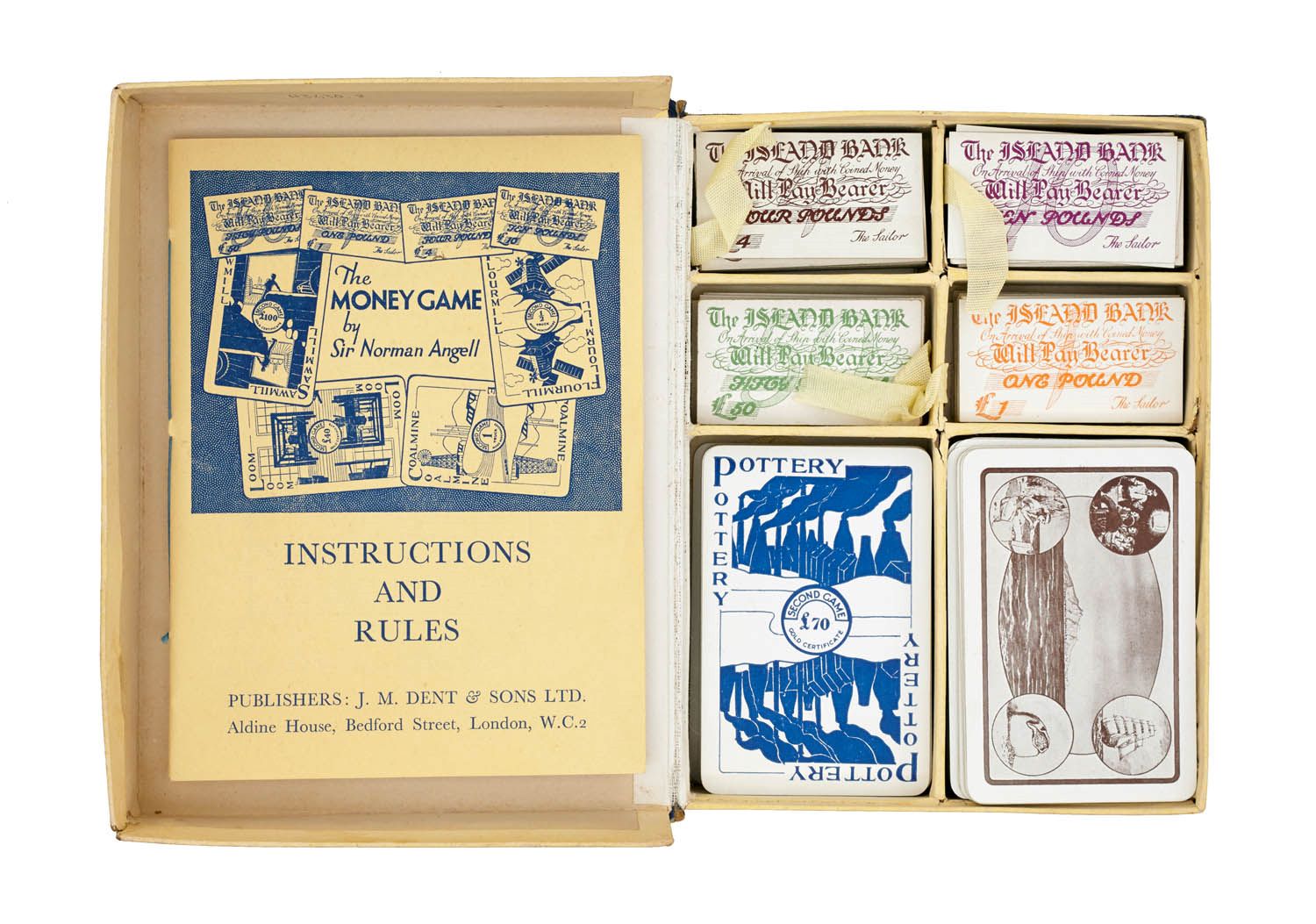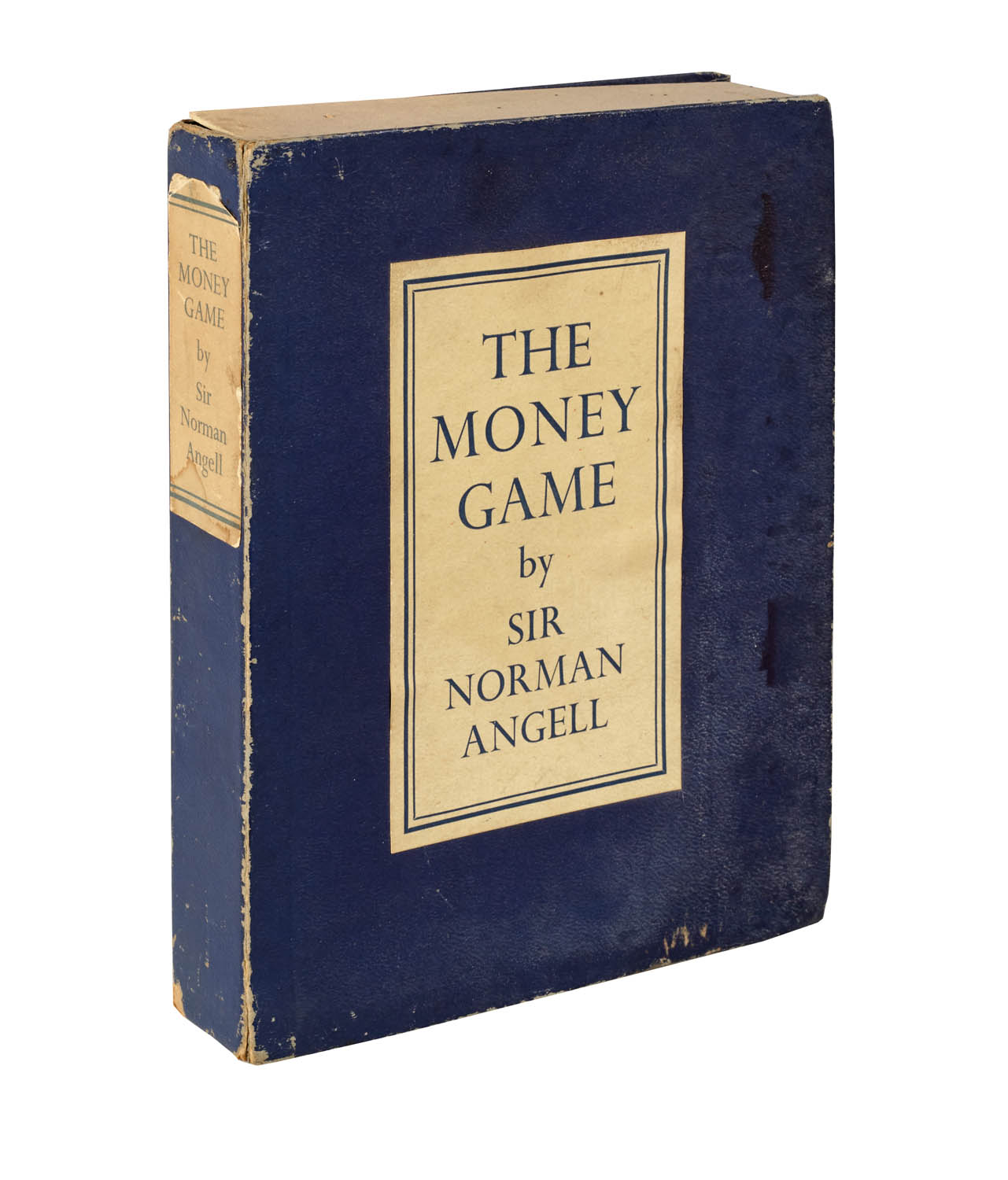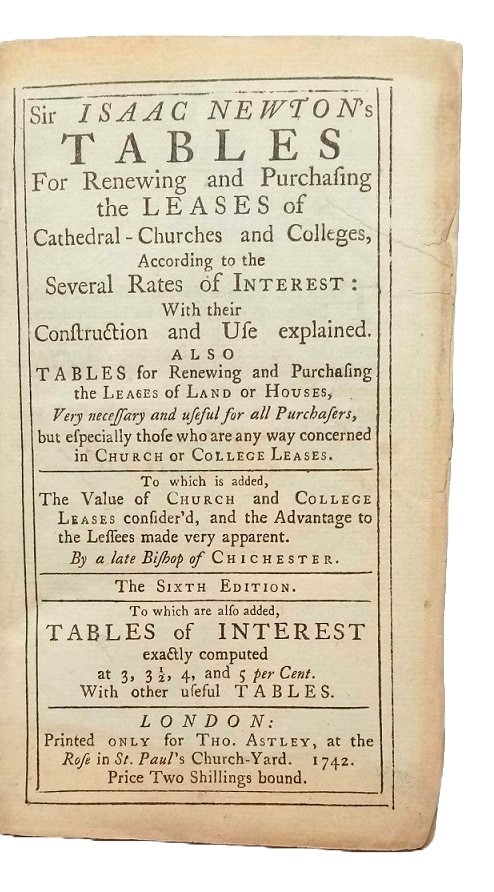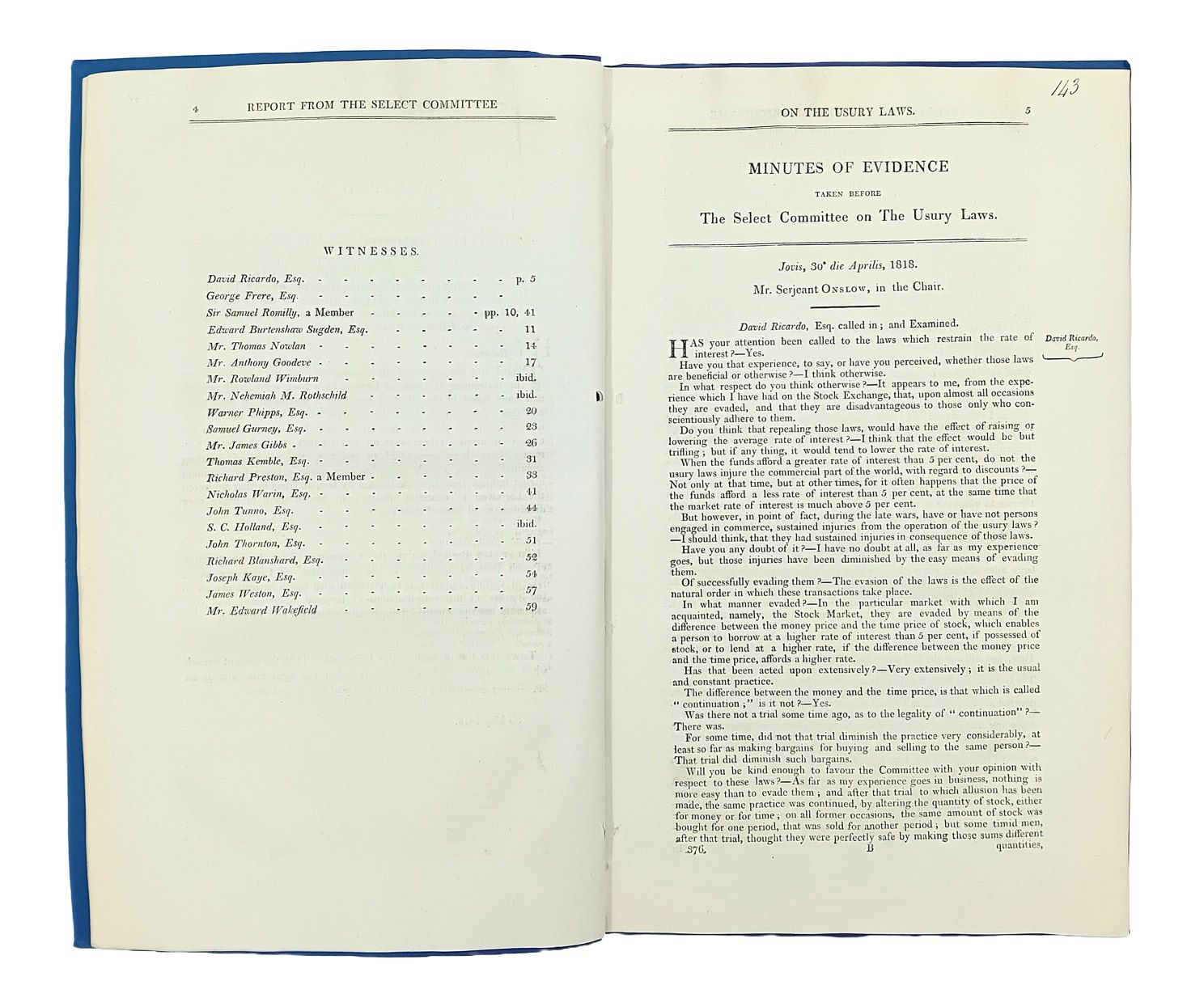

BORED OF MONOPOLY?
ANGELL, Sir Norman.
The money game.
London, J.M. Dent, [n.d.].
A game, including: ‘Instructions and Rules’, pp. 24, in the original printed paper wrappers, stab-sewn as issued; 8 scoring cards; 100 merchandise playing cards comprising 10 suits; 2 insurance or catastrophe ‘joker’ cards; 141 (of 150) bank-notes; preserved in a book-effect card box, printed labels to spine and upper board; interior divided into six compartments with lifting ribbons; some wear and light marking to box, contents very good; inscription of Frank Brookes (1942) inside upper cover.
Early edition of this ‘new instrument in economic education’. This unusual, yet educational game combines strategy and economics to provide a little-known, but deeply rewarding alternative to Monopoly. ‘The Money Game’ aims to teach players the principles of economics, including the mechanisms of banking, barter, credit, and currency exchange. For 4-10 players, it comprises 3 parts, all of which can be played independently of each other. Based around a fictitious island community, ‘the principle of the game is that one person, the ‘Banker’ represents the Sailor-Engineer [who has recently arrived on the island and is attempting to develop a market economy in the previously money-free society] and the other players the Islanders’ (preface to game no. 1). Sir Ralph Norman Angell (1872-1967) was convinced that the general populace knew worryingly little about economics; this was his most enjoyable answer to the problem. The game was marketed as suitable for all ages, from school children to business people.

